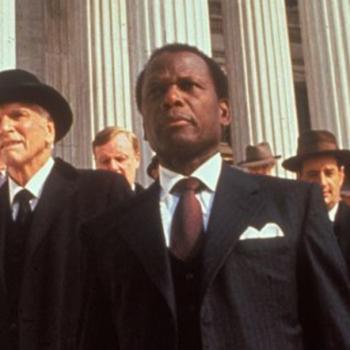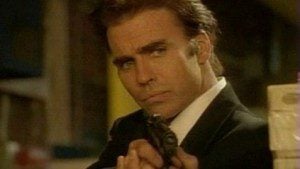 IT’S TOO early to say all that much about The Matrix Reloaded — it’s only the first half of a two-part sequel that won’t be over until the next installment comes out in November — but the film does force fans of the first movie to rethink everything they thought they knew about it.
IT’S TOO early to say all that much about The Matrix Reloaded — it’s only the first half of a two-part sequel that won’t be over until the next installment comes out in November — but the film does force fans of the first movie to rethink everything they thought they knew about it.
Ever since The Matrix came out four years ago, many Christians have had fun pointing out all the parallels between Neo (Keanu Reeves), the prophesied chosen one who fights back against the machines that have enslaved humanity sometime in the future, and Jesus.
Never mind the film’s glamourization of terrorism or its overtones of Gnostic mythology, eastern religion and French postmodern philosophy — the film had a hero who died and came back to life again, and that was enough to make the film okay in the eyes of many Christians.
But The Matrix Reloaded may cause Christian fans to rethink their appropriation of Neo’s story, not least because the new film seems to undermine the very messianic overtones of the first film.
For example, consider how Morpheus (Laurence Fishburne), Neo’s mentor, objects to the Matrix not because it is an artificial reality — if anything, he seems to like the powers he has in cyberspace — but because it is the means through which machines “control” humanity. And then note how Morpheus believes in a “Fate” that guides everyone’s lives.
Without giving too much away, the new film asks whether there is any real difference between Fate and the Matrix — it asks, in effect, whether prophecies and promises of salvation may be just another form of control.
Also, consider how, in the first film, one character said it is following our impulses that makes us human. The new film seems to question that idea, too, since it suggests that even our impulses may be nothing more than bio-chemical reactions, and our actions may be nothing more than the end result of a series of deterministic “causes and effects”.
Thus, even if Neo rescues everyone from the Matrix, they might still never be truly free, because they have no free will.
We will have to wait until November to see how the Wachowski brothers, who wrote and directed these films, plan to answer these questions. Alas, pondering these questions is not as fun as it used to be, since The Matrix Reloaded is basically just one fight scene after another, with little to give them the meaning or narrative purpose that the fight scenes in the first film had.
The new film also adds a new, and very awkward, element of sexuality to the story. The orgiastic dancing in Zion, the city of liberated humans, is especially tacky. It’s enough to make you think Cypher, the traitor in the first film, may have had a point when he wanted to get away from all that.
Internet Movie Database | Movie Review Query Engine
USA: R | BC: 14A | ON: 14A
— A version of this review was first published on the BC Christian News website.












